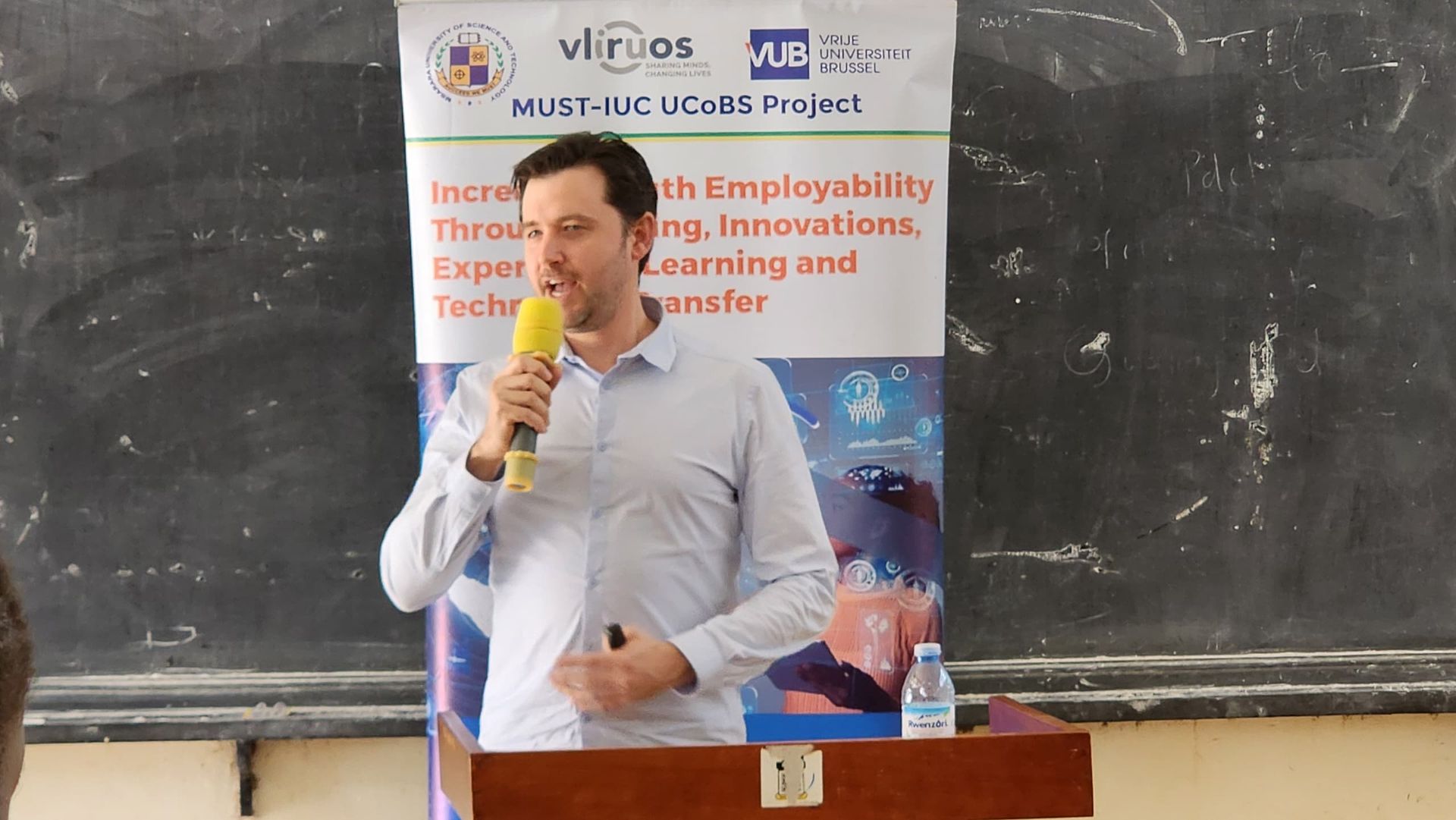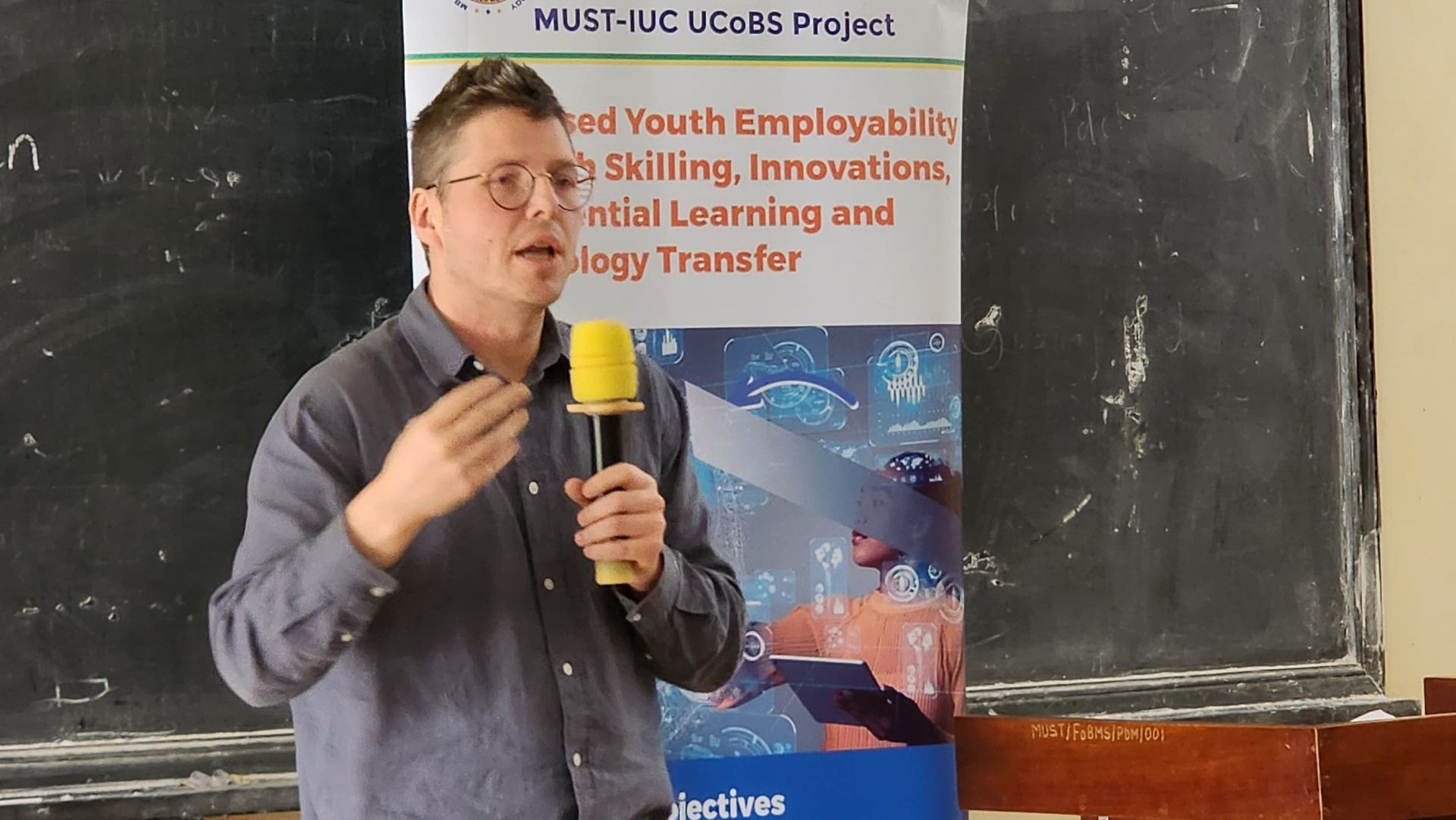The journey of a business, from its initial start-up phase to a thriving scale-up, is fraught with challenges and opportunities. A recent guest lecture on February 5th, 2025, at Mbarara University of Science and Technology (MUST) provided invaluable guidance for navigating this critical transition, alongside insights into motivating employees for peak performance. The event featured two dynamic speakers: Professor Thijs Martens and Dean Randy Lumiere, both from Howest.
Navigating the Start-Up to Scale-Up Transition
Professor Thijs Martens, a senior lecturer at Howest, emphasized the importance of the start-up phase, acknowledging its inherent challenges while highlighting the necessity of preparation for the subsequent scale-up phase. He clearly differentiated between the two stages:

Professor Martens, a senior lecturer at Howest, emphasized the importance of the start-up phase, acknowledging its inherent challenges while highlighting the necessity of preparation for the subsequent scale-up phase. He clearly differentiated between the two stages:
- Start-ups: Focus on prototyping, testing product acceptability with customers, and conducting extensive market research to ensure product-market fit. Funding typically comes from personal savings, family, and friends.
- Scale-ups: Deal with finished goods ready for sale, prioritize go-to-market strategies, and require more substantial funding, often from investors or financial institutions.
He further outlined key considerations for scaling a business:
- Product Readiness: Understanding the value customers derive from the product, their willingness to pay, and optimal pricing strategies are crucial.
- Customer Feedback: Actively listening to and incorporating customer feedback is essential for continuous product improvement and refining the business model.
- Sales & Growth: Boosting sales through promotions, delegating responsibilities effectively, conducting purposeful meetings with clear agendas, and celebrating successes are all vital for sustainable growth.
Motivating Employees Through Self-Determination Theory with Dean Randy Lamiere
Motivating Employees Through Self-Determination Theory
Dean Lamiere, from Howest, addressed the critical question of how to create a positive and lasting impact on employee motivation through the lens of Self-Determination Theory (SDT) defining motivation as "the processes that initiate, guide, and sustain goal-directed behavior," emphasizing its importance in determining not just whether we act, but also the effort and persistence we invest.

Dean Lamiere explored the different types of motivation:
- External Pressure: Driven by rewards or fear of punishment.
- Internal Pressure: Driven by internal demands and expectations.
- Utility Motivation: Driven by the meaningfulness and relevance of the task.
- Intrinsic Motivation: Driven by enjoyment and interest.
- Controlled Motivation: Also known as low-quality motivation.
- Value-Driven Motivation: Driven by alignment with personal values.
- Autonomous Motivation: Also known as high-quality motivation.
Participants shared insights into indicators of motivated employees (focus, extra effort, pride, participation) and their own motivators (positive feedback, involvement, clear goals).
Dean Lamiere emphasized the importance of autonomous motivation in the workplace, as it leads to increased job satisfaction, reduced turnover, improved performance, greater vitality, enthusiasm, and support. He outlined the three basic psychological needs according to SDT:
- Autonomy: Feeling in charge of one's goals and behavior.
- Competence: Having the ability and skills to accomplish tasks.
- Relatedness/Connection: Feeling a sense of social belonging.
If you're interested in diving deeper into the topics, Watch the Full Lecture Here